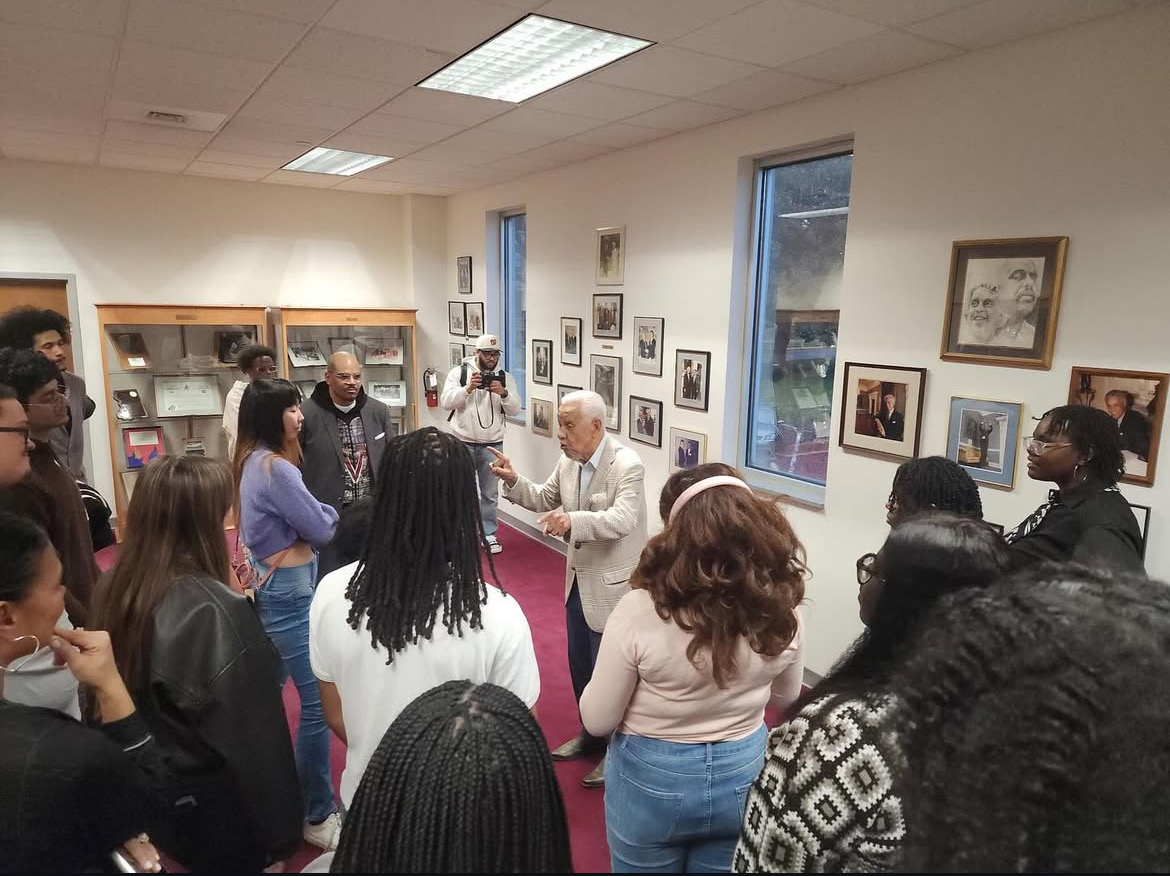Writing this piece is daunting. There is so much I want to say, so much I need to say, but finding a way to accurately articulate my conflicted feelings feels futile. This is my attempt.
I have felt disheartened, frustrated and saddened by the lack of nuance the Israeli/Palestinian conflict has received on campus and social media. I have felt compelled to remain silent for fear of ostracism for expressing my struggle to process and understand what is happening. What I am attempting to capture here are my feelings in this time and place. I may find that I disagree with myself in two weeks or two years, but that is okay. I am not trying to be “right,” and I want to clearly state that I am not claiming to be an expert on this topic, nor am I defending racism and abhorrent violence. At this moment, I hope you can read this piece for empathy and understanding.
The past two weeks have been agonizing. I am exhausted. As an American Jew with many relatives in Israel, my connection to the land and to the conflict is inherently complex. I cannot understand this complicated geo-political and ethno-religious conflict as the “good” versus the “bad,” as one side against another side. The only way for me to express my understanding is through a series of tensions that I am actively wrestling with.
I whole-heartedly condemn the Israeli government’s war crimes against innocent Palestinians; I also cannot argue that Israel should not defend itself from the barrage of missiles aimed at civilians. I recognize that the Israeli government and right-wing Jewish extremists have continued to displace Palestinians from their homeland; I also recognize the historic ties of the Jewish people to Israel as their homeland. I support the plight of Palestinians while recognizing the dangers of Hamas’ and others’ antisemetic rhetoric. I support the many Israeli civilians who, like all of us were under Trump, are forced to live with a right wing leader who continually undermines any work toward peace. To me, these tensions reflect the complexity and sometimes contradictory truths of the conflict. These are the tensions that have quite literally kept me up at night and that I have not seen reflected in campus conversations or social media posts.
When I opened CSA’s email last Friday titled “In Solidarity,” I was hurt by the lack of mention of the Israeli civilians who had been killed by Hamas missile strikes. Any of those twelve civilians could have been members of my family. Acknowledging the deaths of civilians should not be debatable or political. Yet, far beyond CSA’s email, this has indeed become the case. It feels like we exist in a world where our opinions are confined to a binary, that there is a right answer and a wrong answer; this strikes me as dangerous. While there are many reasons I fear black-and-white analysis of any geo-political and ethno-religious conflict, I am particularly concerned about the ways antisemitism, both explicit and implicit, seaps its way into discussions of Israel and Palestine.
Although highly contested in many Jewish spaces, I am comfortable drawing a line between anti-Zionism and antisemitism. As someone who has been accused of being a self-hating Jew for criticizing Israel, I am more than willing to separate a political state from a religion; however, I see the line between anti-Zionism and antisemitism being blurred and crossed. In my own experience, I have had to silence parts of myself to be accepted into social justice and activist work. If I choose to share my feelings about Israel, regardless of how conflicted they may be, I am often ostracised for my failure to completely denounce the country. There is no acknowledgment of why I might feel an emotional connection to the land itself regardless of the country’s political status. More broadly, all over social media I see Zionist being used as a stand in for Israeli, and on occasion, for all Jewish people. I see the conflation of “Israeli” with Jewish and Israeli with Israeli government. I see “Free Palestine” commented on Jewish people’s social media posts and TikToks who are not posting anything related to the conflict. I see post after post ignoring the histories of antisemitism that led to a desire for a Jewish homeland. I see active silence around the historical connection (thousands of years before the founding of the modern state in 1948) of Jews to the land of Israel and to historical interactions between Jews and Arabs in the area.
I also find myself wondering how many people will still post once this flashpoint deescalates. I wonder how many people have sought out viewpoints of Jewish and non-Jewish Israelis or have made distinctions between Palestinians and Hamas and other governing groups. Why is it that non-Israelis, non-Palestinians and non-Jews feel particularly passionate about criticizing Israel and its existence when there are other countries committing equally heinous crimes?
I do not ask these questions to be cynical or to detract from the necessary critique of the Israeli government’s actions. I ask these questions because this rhetoric has serious, real-life consequences. While antisemetic hate crimes — like all religious, racial and ethnic-based hate crimes— have been on the rise both here in the US and globally, there has been a particular spike since the eruption of current violence. Anger about the actions of a right-wing government should not, cannot be taken out on random Jewish individuals. Unfortunately, anti-Zionist sentiments are being used as justification for such acts.
I am not here to tell you whether you are being explicitly or implicitly antisemetic. I am not here to defend one side and demonize another. I am here to ask that you think critically about how you are engaging in this conflict and that you interrogate your biases, knowing that I, the author, am trying to do the same.
I have gotten this far in a piece I honestly did not think I could write. My desire to muddle my way through this comes from my deep belief in the importance of nuance and from the worry I have for my relatives, some of whom live in Tel Aviv and others of whom live just miles from Gaza. I ultimately felt like I could not express my concern for my Israeli relatives without engaging in a hyper-politicized conversation. I am emotionally exhausted, as I imagine many of my fellow Jewish and Palestinian classmates are. What I have written above is not a perfect reflection of what I am thinking and feeling, and it will never be. My opinions — shaped by facts, nuanced conversation, and personal experiences— will inevitably change. If you, the reader, walk away understanding a different perspective and empathizing with an agonized student, I can rest a little easier. I have chosen to open up anonymously for fear of harsh judgement, ridicule and ostracism. If you have listened, I am grateful.











Anonymous • May 24, 2021 at 4:08 pm
I can’t thank you enough for writing this and for putting my sentiments into words in a much more eloquent way than I would have been able to. The fear and stress I feel from all sides of this conflict as I try to navigate my simultaneous identity as an American Jew, a supporter of equal rights for Palestine, and a critic of the current Israeli government has been overwhelming, but it’s comforting to know I’m not alone. However, the lines between antisemitism and criticisms of Israeli have become far too blurred and I worry for the safety of both Palestinians and Israelis, and at the same time for Jews and Palestinians worldwide. The intensity of this conflict and the ensuing debate is taking a toll on all of us, so I am very grateful for your insightful and thought-provoking piece and I can only hope for genuine and lasting peace as we move forward.